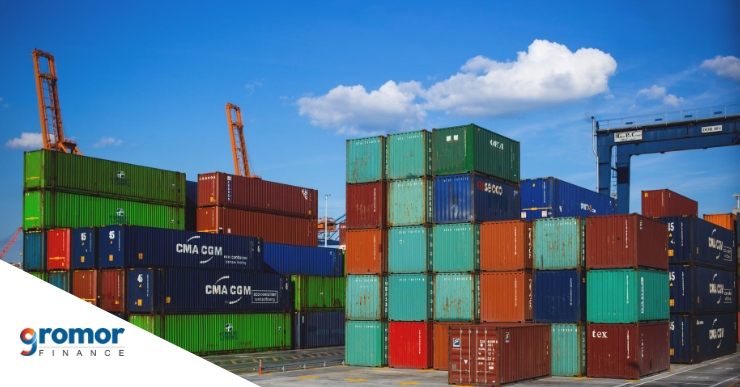The import-export business has become more profitable in India since the introduction of ecommerce as it allows the business to reach a global audience.
A lot of entrepreneurs are venturing into this field of business from their homes or small offices. But it is essential to know all the procedures and documentation involved in the business.
The first step is to register your business.
Here are some pre-requisites to start an export/import business:
If you want to start an export/import business in India, some things are necessary.
1. Set up your business
Firstly, it is important that you have a business set up in place. It is advisable to first start with a sole proprietorship by taking a Service Tax registration or a VAT with a name and logo.
2. Pan Card
Second pre-requisite is to have a PanCard.
3. Register your business
Then, you need to get your business registered with the government of India whether it is a sole proprietorship, in partnership, a private limited company, or an LLP. Obtaining a Service Tax registration or a VAT registration certificate is also important. Help from a lawyer can be taken to complete these steps.
4. Current account
You should have a current account to carry out the business transactions.
5. IEC code
A mandatory thing is the IEC code issued by the government of India to start an export-import business in the country. For the IEC code, you should have documents like Pancard, photographs, and a copy of the canceled cheque form the business’ current account.
6. RCMC
After getting the IEC, it is important to obtain the Registration-cum-Membership-Certificate (RCMC) by the Export Promotion Councils. After you get the IEC and RCMC, you will be able to start your import and export business.
7. Logistics
You also would need to make sure that your logistics are in place so that you can deliver the products worldwide at negligible shipping charges.
8. Customs clearing agent
Another thing to note is that you might need to take the assistance of a customs clearing agent to guide you about the process of getting the items cleared at the ports, and also about the customs duty charges, transportation charges, etc.
Opportunities that are available for import/export business owners:
- Online marketplace: Sites like Amazon.com and a few more allow exporters to enlist as a vendor on their site and let connect with potential customers across the globe. All this is possible due to the facility of the internet that connects exporters to their customers globally.
- International markets: Every country has some resources to be exported for which import certain resources is necessary. Researching what you can export to a particular country and what can you import in return is necessary.
- You can also sell the products that you don’t manufacture on your own by collaborating with other manufacturers to sell their items in the international market. For example, tea and tobacco are produced in India and are in good demand in the international market. Leather and medical products like wallets, belts, toys, handbags, gloves, bandages, face masks, etc. can also be exported.
The import/export business is not that simple, and there are some mistakes which you as a small business owner might make.
Here are some common mistakes to avoid:
1. Lack of knowledge about import/export regulations
Lack of knowledge about the rules and regulations of the business can increase the cost of the business. Without the proper understanding of the rules, the businessman might fail to clear the goods in time, which will lead to some penalties.
2. Hiring an inexperienced custom broker
Customs clearance is a critical part of the export/import business. Hiring an inexperienced custom broker to save money can spoil your business. Make sure that you ask for a reference from other companies and take note of their experiences. It is also important that the customs officer knows the industry, and understand your business.
3. Declaring the wrong value in customs
Some business owners choose not to declare the right amount not knowing the damage it can cause.
Paying the right customs duties ensures the smooth functioning of the business. This will also help in an accurate tax filing.
4. Failing to insure goods
One has a misconception that Cargo insurance is an unnecessary expense and the freight forwarders and goods carriers are responsible for the loss or damage to the goods, but their liability toward the goods is minimal which is why it is necessary to get the cargo insured and also to include in the agreement about who is responsible for the insurance. Insurance should be treated as an investment to protect the business from any financial loss.
5. Not verifying the supplier or buyer of the product
Carrying out a check on the customers and suppliers before signing the contract is necessary. Some believe that just because they are present on a site, it is safe to do business with them.
Many are not genuine, so it is important to verify with a proper website of theirs and also take help from government officials to find out more about a customer
If you want an unsecured loan for your business, contact Gromor Finance for quick funds!


